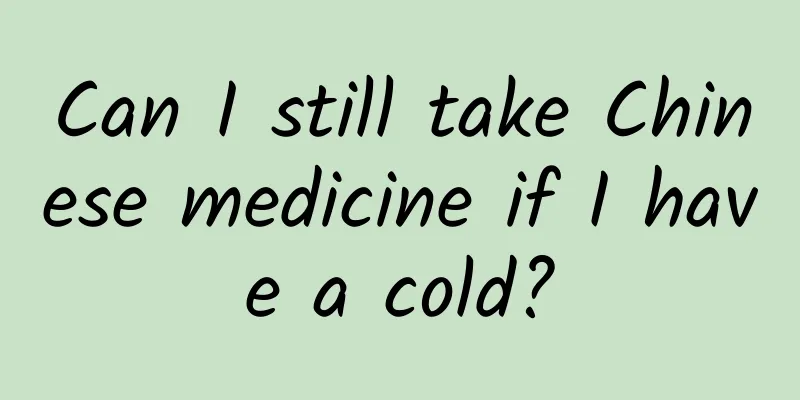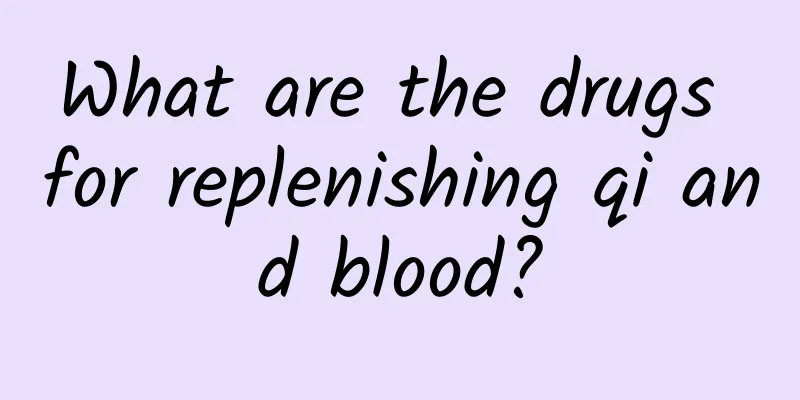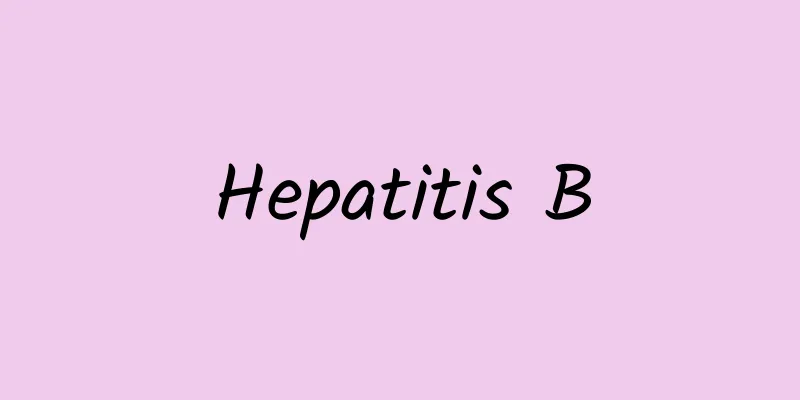Can I still take Chinese medicine if I have a cold?

|
Cold is an inevitable disease that happens to almost everyone. Some people recover on their own after a week, but some people eventually develop bronchitis, pneumonia, etc. This has a lot to do with a person's physical fitness. So can you still take Chinese medicine when you have a cold? A cold can be improved by taking Chinese medicine. Compared with Western medicine, Chinese medicine is more gentle in treating colds and has fewer side effects on the body. 1. Can I still take Chinese medicine if I have a cold? You can continue to drink Chinese medicine if you have a cold. A cold is just a result of low resistance. Of course, if you have a fever, it is best to stop taking the medication and give priority to curing the cold. The important ingredients are relatively complex, and mixed use may change the medicinal properties and affect treatment. 2. Cold classification and symptoms 2.1. Classification of colds: Colds can be divided into three types: exogenous wind-cold, exogenous wind-heat, and exogenous summer-dampness. 2.2. Symptoms of cold: Symptoms of exogenous wind-cold include fear of cold, low fever, no sweating, headache, body pain, thin sputum, white sticky sputum when coughing, sore limbs, thin and moist tongue coating, and floating pulse. The symptoms of exogenous wind-heat are high fever, cough with yellow, thick and purulent sputum, no fear of cold, headache, sore throat, slightly yellow tongue coating, dry mouth, excessive sweating, white and dry tongue coating, and floating and rapid pulse. Exogenous heat-dampness mostly occurs in summer and is caused by the invasion of dampness. Patients have high fever, dizziness, hotness in the heart, fatigue, no sweat, dry mouth, vomiting, nausea, small amount of yellow urine, yellow and greasy tongue coating, etc. 3. What to eat to get better quickly when you have a cold 3.1. The carotene in radish may play a certain role in preventing colds and relieving symptoms such as excessive sputum during colds. I recommend a method: chop the radish, squeeze out the juice, then mash the ginger, squeeze out a small amount of ginger juice, add it to the radish juice, mix well, and pour in warm water to make a drink. 3.2. Honey. It contains a variety of biologically active substances that can stimulate the body's immune function. Taking it twice a day, morning and evening, can enhance the body's immunity and resist viral invasion. 3.3. Onions have a pungent smell, can resist cold, resist colds, and have a certain antibacterial effect. Onions can also stimulate the secretion of the stomach, intestines and digestive glands, increase appetite and promote digestion. Garlic contains a capsaicin called "propylene sulfide", which has a good inhibitory effect on pathogens and parasites. 3.4. If you get caught in the rain and wind and catch a cold, and feel chills, headaches, coughs, and runny noses (the nasal discharge is clear and thin phlegm), a bowl of your grandmother's brown sugar ginger soup is the fastest and most effective way to prevent a cold. The gingerol and zingerone in ginger can induce sweating and drive away the accumulated heat in the body. Especially the old ginger with less water is spicy and has a better effect in promoting blood circulation. Adding brown sugar can supplement calories. What not to eat during a cold 1. Sweets. Whether it is high-sugar fruits or desserts, they should be avoided during a cold. Sweets not only increase the viscosity and amount of phlegm, but also cause abdominal bloating and suppress appetite. High-sugar fruits include mango, grapes, lychees, sugarcane, pineapples, red dates, etc. 2. High-salt foods. Experimental data show that reducing salt intake can increase the lysozyme content in saliva, protect the epithelial cells of the oral and throat mucosa, and allow them to secrete more immunoglobulins and interferons to fight the cold virus. But you cannot do without salt when you have a cold, because the body will lose some sodium ions during the process of sweating, and the salt used in cooking is a supplement to sodium ions. During a cold, just limit your daily salt intake to 5 grams. 3. Crude fiber foods. During a cold, people's gastric motility is weak, so during this period, you should try to avoid eating crude fiber foods such as celery, leeks, and chrysanthemum, otherwise it will increase the burden on the gastrointestinal tract. 4. Food that is too spicy. Spicy foods such as chili peppers can make the fragile gastrointestinal function more disordered and even cause the risk of nausea and vomiting. 5. Strong tea and strong coffee. Strong tea and strong coffee can cause gastrointestinal discomfort and sometimes may trigger gastroesophageal reflux. What can't you eat when taking Chinese medicine? 1. Raw and cold foods. This type of food is mostly cold in nature, and its primary function is to clear away heat and quench thirst, so it is suitable for heat-syndrome diseases. However, it can easily affect gastrointestinal function, so people with weak and cold constitution and patients with gastrointestinal diseases should avoid it. When taking ginseng and other tonic medicines together, because the medicinal properties are incompatible, the effectiveness of the tonic medicines may be reduced or eliminated. Therefore, radish and ginseng should not be taken together. 2. Foods that cause allergies. "Fa" can be said to have the meaning of promoting the aggravation of the disease to a large extent. This type of food is all wind-inducing, phlegm-generating and fire-stimulating. Because the degree to which the disease is selective in terms of food, the effects of this disease will also be different. Such foods include mushrooms, champignons, bamboo shoots, mustard greens, pumpkin, rooster meat, pork head, sow meat, etc. 3. Fishy foods. Most of these foods are salty, cold and fishy, and rich in foreign proteins, which can easily cause allergic reactions. Eating too much can damage the spleen and stomach and induce diseases. Therefore, people with spleen and stomach diseases should not eat too much, especially those with allergies. 4. Spicy food. This type of food is mostly spicy and hot, and has the effect of promoting yang and strengthening the stomach. If consumed too much, it can easily produce phlegm and fire, disperse qi and consume blood. Therefore, this type of diet is not suitable for people with yin deficiency and yang hyperactivity, as well as patients with blood syndrome, febrile diseases, hemorrhoids, fistulas, carbuncles, etc. 5. Sour and astringent foods. Too much acid will affect the stomach and intestines, so patients with excessive stomach acid and gastrointestinal ulcers should not eat it. |
<<: Astringent and antiperspirant Chinese medicine
>>: Can I drink chrysanthemum tea while taking Chinese medicine?
Recommend
The genetic probability of ankylosing spondylitis is so great
Life will become extremely painful after sufferin...
Dandelion granules efficacy and function
Recently, many friends have told me about the fun...
What are the symptoms of hypochondriasis anxiety disorder?
There are many causes of hypochondriasis and anxi...
What are the traditional Chinese medicines for treating chronic glomerulonephritis?
The occurrence of chronic glomerulonephritis is r...
Is pulmonary edema contagious? Timely treatment is the most important
Pulmonary edema is mostly acute, and coughing is ...
Effects of phenolphthalein tablets
Everyone knows that many people have symptoms of ...
Can massage cure nephrotic syndrome?
Nephrotic syndrome is a relatively serious kidney...
What are the effects, functions and contraindications of Lithospermum officinale?
You may not have heard of Shijueming. In fact, it...
Can you feel your cervix?
The cervix is located deep in the vagina and ca...
What is the best time to do moxibustion on Yongquan acupoint?
Yongquan acupoint plays a very important role in ...
Ear inflammation acupuncture points
Ear inflammation is a relatively complicated infl...
Can cupping be done continuously?
In the field of traditional Chinese medicine, it ...
How to remedy cold back after confinement
Because you lose blood when giving birth, and the...
Knee feels swollen and painful
So far, many people have reported knee pain, swel...
What causes red nails?
If your nails turn red or other colors one day, s...









